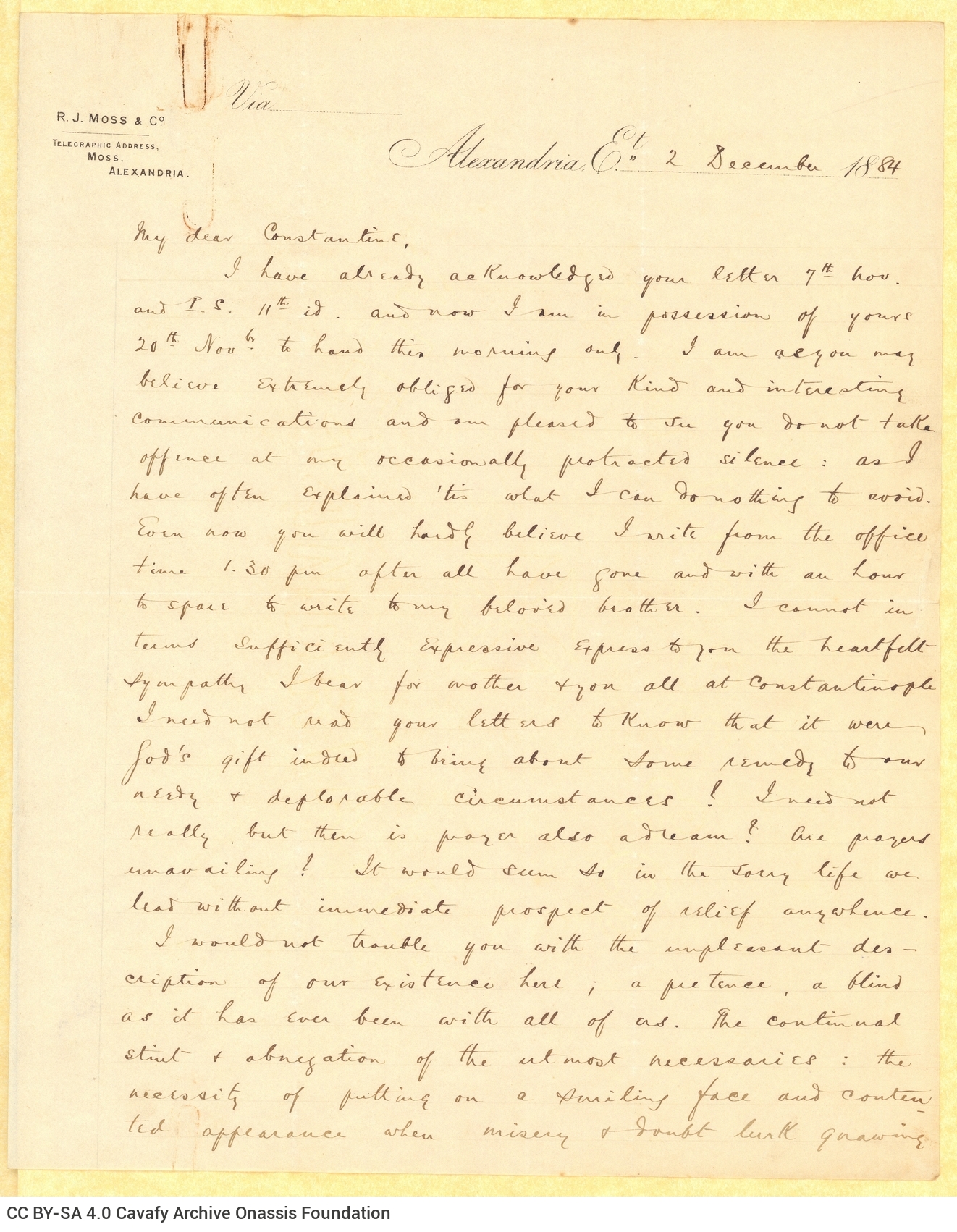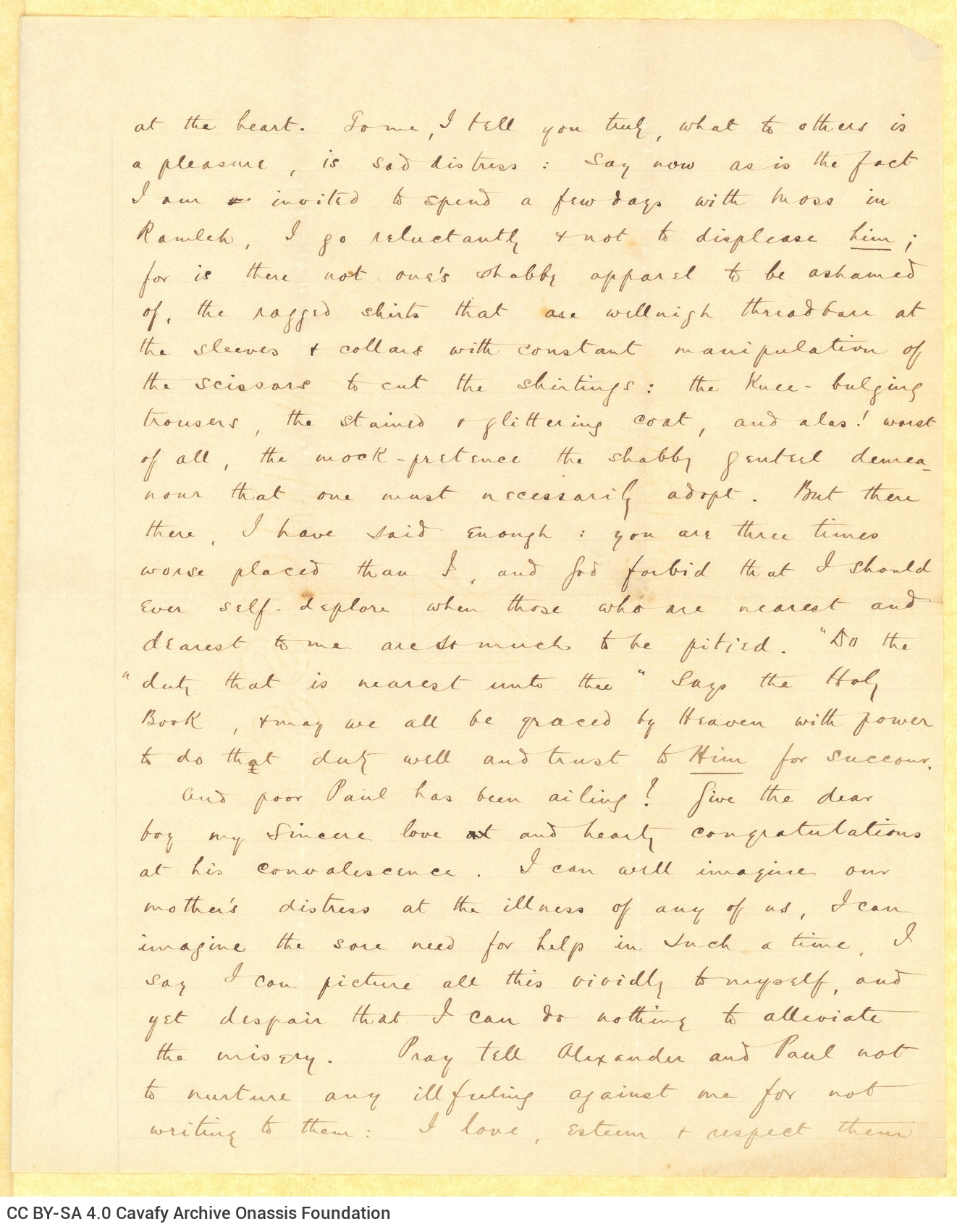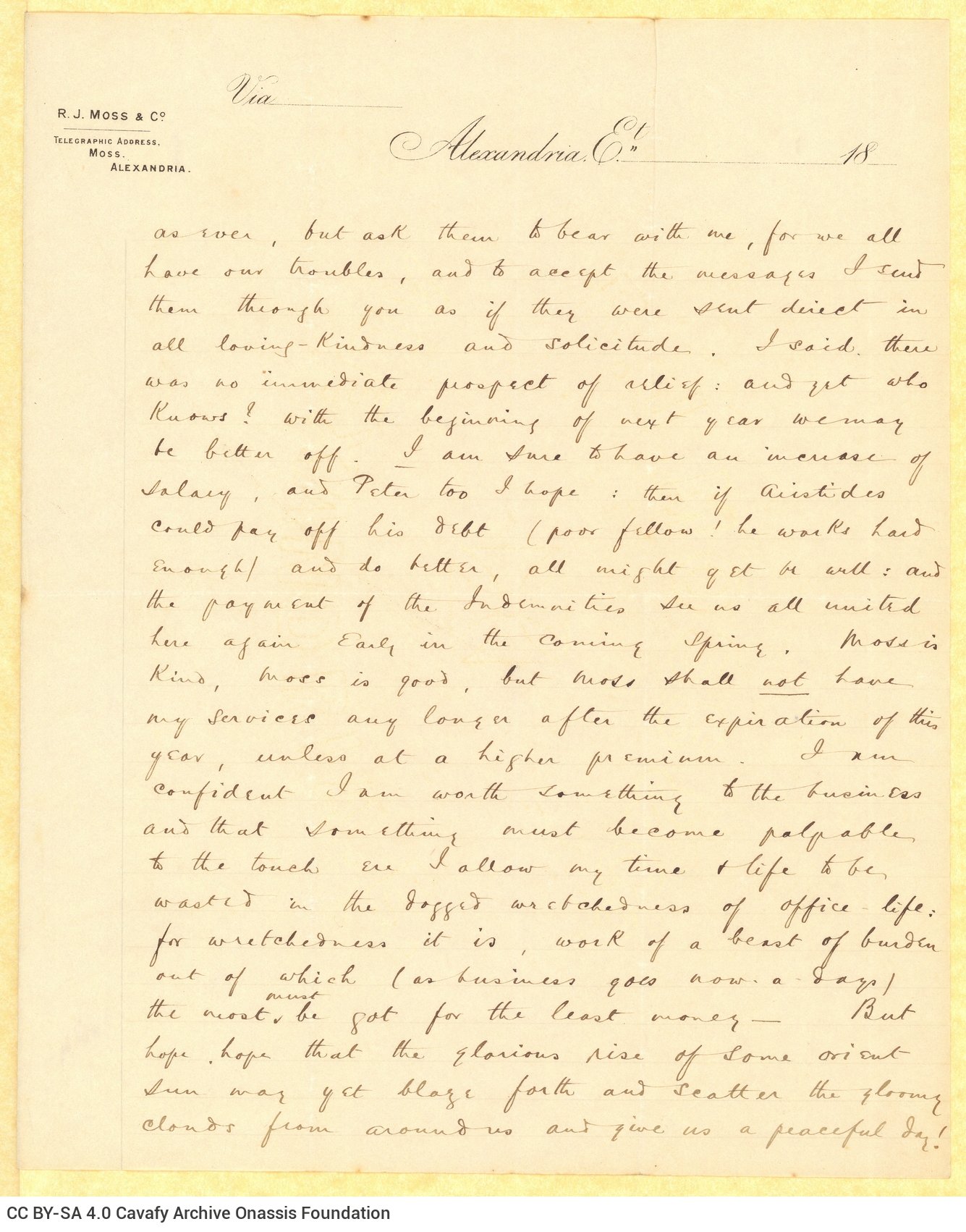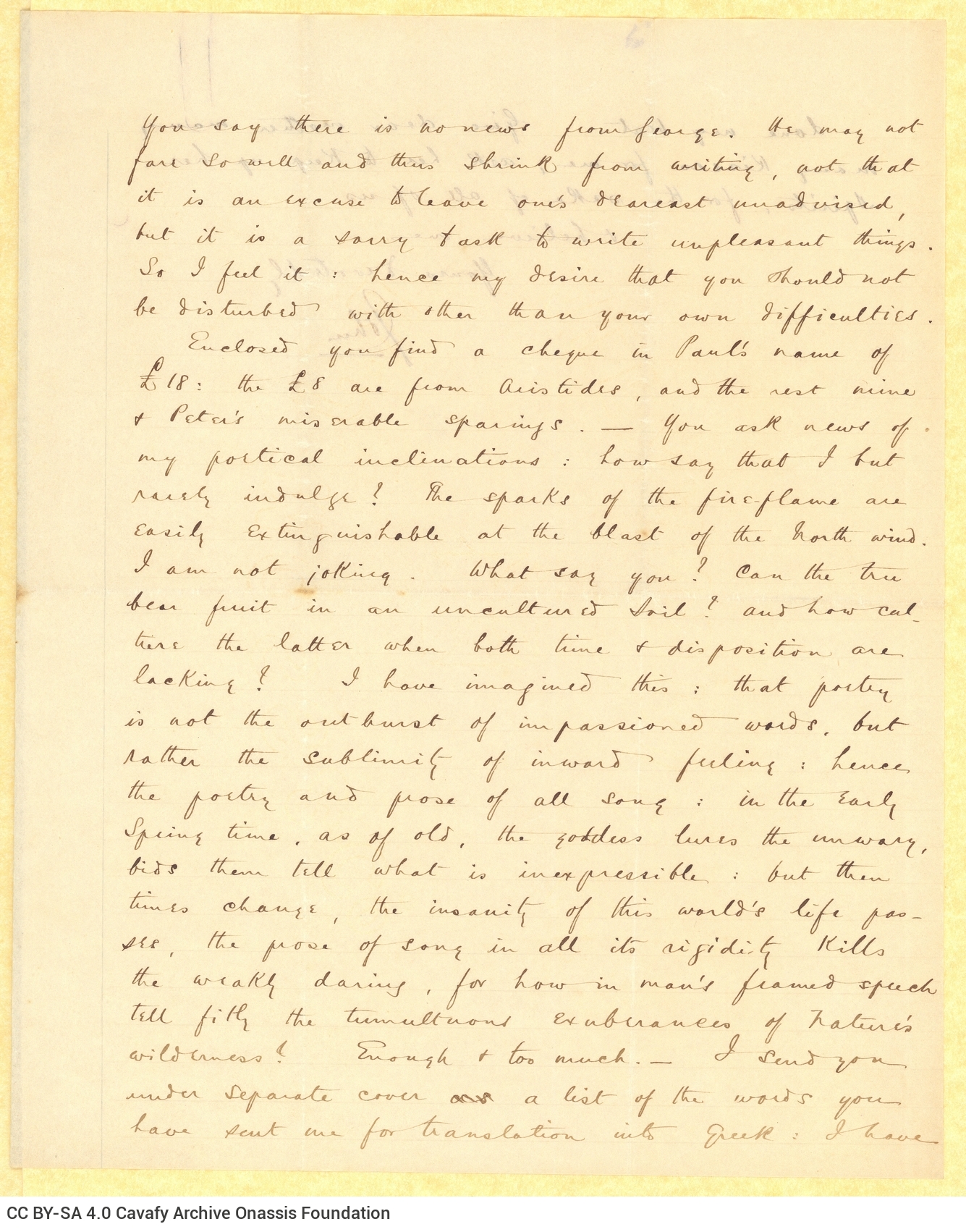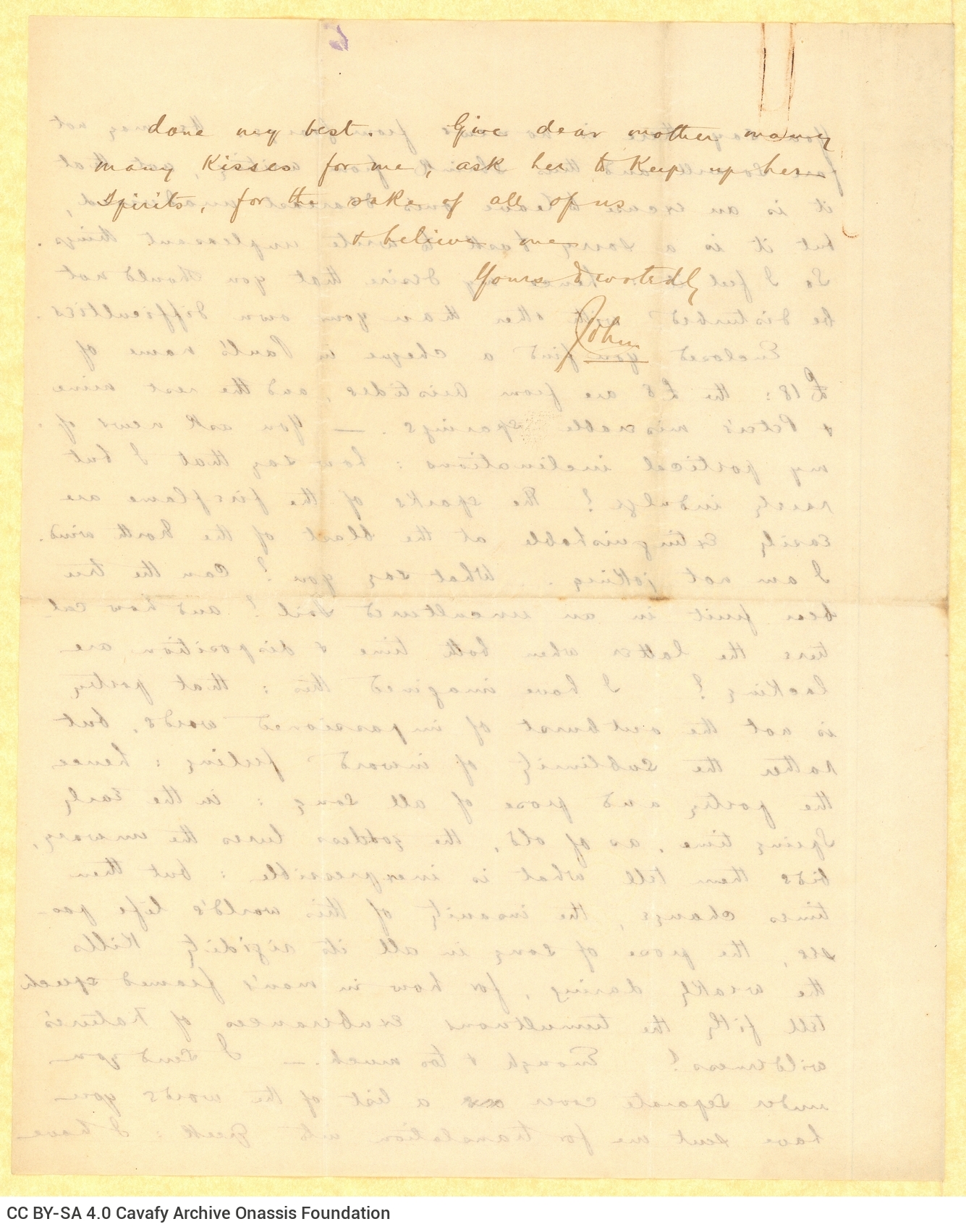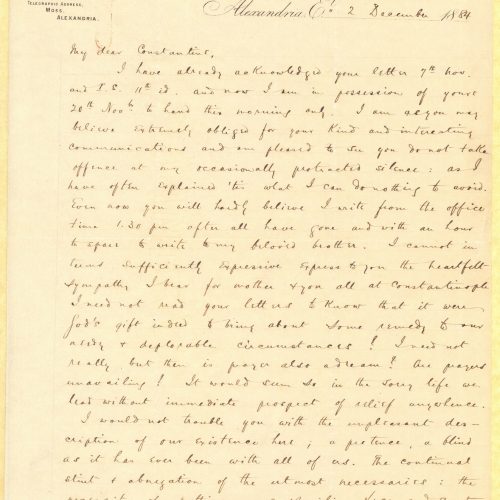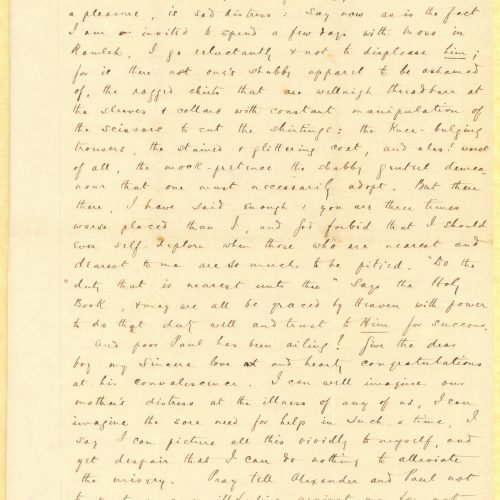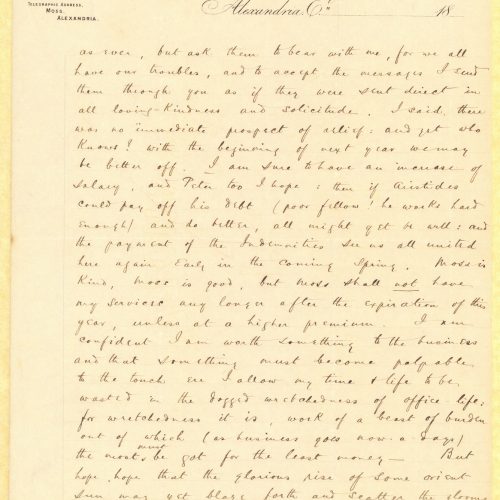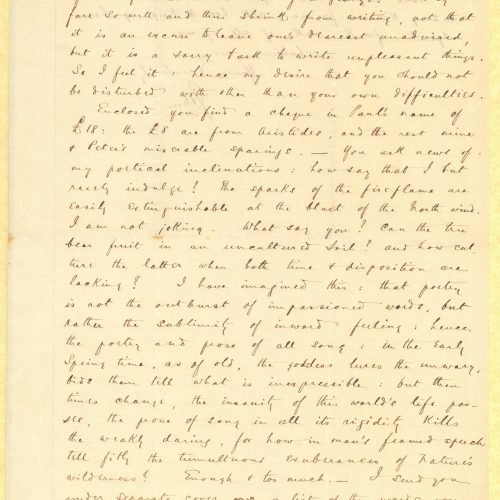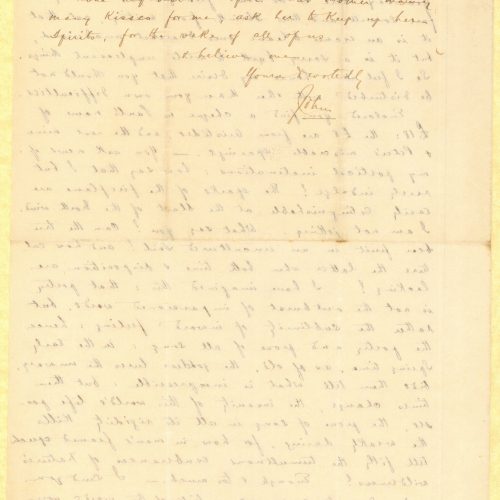υπογράμμιση
υπογράμμιση
πράσινη γραμματοσειρά
κίτρινη γραμματοσειρά
κόκκινη γραμματοσειρά
DIGITAL OBJECT DESCRIPTION
IDENTITY AREA
44 x 27.5 cm
CONTEXT AREA
CONTENT AND STRUCTURE AREA
Handwritten letter by John Cavafy to C. P. Cavafy on two double sheet letterheads of R. J. Moss & Co., Alexandria. The sender describes the difficult work conditions and the poor financial situation of himself and his brothers as well as the psychological consequences of these conditions. He expresses, however, his optimism for the immediate future as well as his disappointment because he cannot find time to engage in poetry. (Alexandria)
CONDITIONS OF ACCESS AND USE AREA
English
Writing in ink. Watermark: R. J. Moss & Co., Alexandria. Physical item wear: oxidations.
NOTES AREA
The transcription and editing of the letters of John Constantine Cavafy addressed to C. P. Cavafy was first carried out by Katerina Ghika; said transcriptions were subsequently uploaded to the official website of the Cavafy Archive.
At the end of the letter, John refers to the dεspatch of a list of Greek words translated into English, as requested by C. P. Cavafy.
ACCESS POINTS
Cavafy, John Constantine. “Letter by John Cavafy to C. P. Cavafy”. Letter, 02.12.1884. GR-OF CA CA-SF02-S01-SS02-F20-SF001-0055 (430), Onassis Foundation C. P. Cavafy Fonds. From The Digital Collection of the Cavafy Archive, edited by Onassis Foundation, Athens, last modified 01.10.2025. https://doi.org/10.26256/CA-SF02-S01-SS02-F20-SF001-0055.
